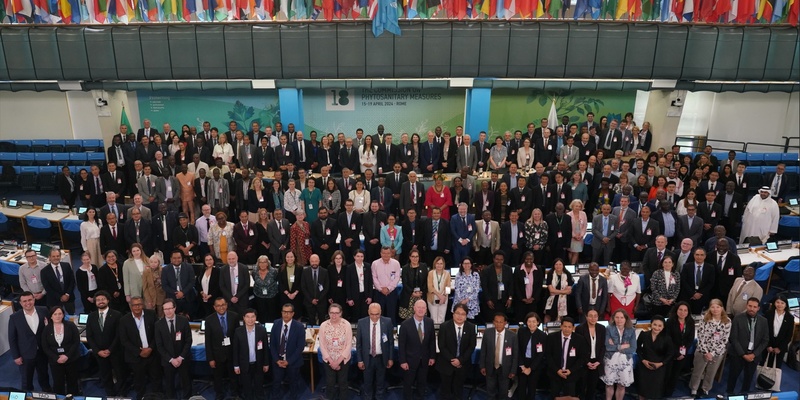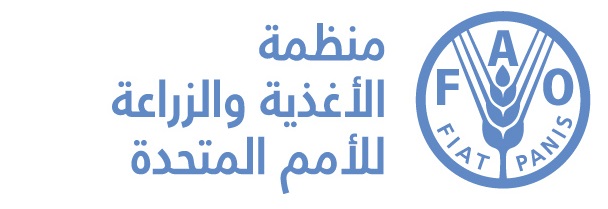Plant health takes center stage as 18th session of the Commission on Phytosanitary Measures opens
Posted on إثنين, 15 إبريل 2024, 13:00

©FAO/ Thomas Toti
PRESS RELEASE. Rome, 15 April 2024. Delegates gather today at the headquarters of the Food and Agriculture Organization (FAO) of the United Nations to take stock of the state of global plant health and to discuss ongoing initiatives to protect plants from the impact of pests and diseases. Preventing pest outbreaks safeguards global food security, keeps the environment healthy, and promotes safe trade.
The Commission on Phytosanitary Measures (CPM) is the main body overseeing the International Plant Protection Convention (IPPC), an international treaty created in 1951 for the protection of plants and natural resources.
CPM holds its 18th session (CPM-18) from 15-19 April to adopt amendments and revisions to four International Standards for Phytosanitary Measures (ISPMs), the benchmark for countries to apply in the trade of plants and plant products. Standards are developed by worldclass experts and adopted at CPM sessions. IPPC contracting parties implement the standards to better manage and respond to the threat or presence of plant pests.
“The work of the CPM and the IPPC are key to safeguarding plants and contributing to global food security,” said FAO Director-General Qu Dongyu in his opening remarks.
“This is in line with FAO’s mandate and the FAO Strategic Framework 2022-2031 which guides our support to Members, for the transformation of global agrifood systems to be more inclusive, more resilient and more sustainable, underlined by our collective aspiration of the Four Better – better production, better nutrition, better environment and better lives, leaving no one behind,” he added.
CPM-18 will also look at the progress of the IPPC Strategic Framework 2020-2030, the roadmap which guides the ongoing work of IPPC governing bodies, contracting parties, the IPPC Secretariat, donors and partners. Under this framework are development agenda items which focus on specific areas of work on global plant protection. Some of these agenda items include managing the pathway for pests through e-commerce, developing a robust pest outbreak alert and response system, digitizing phytosanitary certificates to expedite trade, and developing ISPMs that are specific to widely traded commodities.
“We need continued support and investment to develop international plant health standards and for a more robust pest outbreak and alert systems,” said Osama El-Lissy, IPPC Secretary. “We need all hands on deck – governments, donors, partners, the media and the public,” he added.
The week-long session expects up to 400 delegates from IPPC governing bodies, national and regional plant protection organizations, donors, partners and observers from all over the world.
About IPPC
The IPPC is an international treaty ratified by 185 contracting parties- 184 countries and the European Union, aiming to protect the world's plant resources from the introduction and spread of pests, while promoting safe trade. International Standards for Phytosanitary Measures (ISPMs), developed under the auspices of the IPPC, assist countries in implementing national phytosanitary standards and import requirements. The IPPC, deposited at FAO, is the sole global standard-setting entity for plant health.
About FAO
The Food and Agriculture Organization (FAO) is a specialized agency of the United Nations that leads international efforts to defeat hunger. FAO’s objective is to achieve food security for all and make sure that people have regular access to enough high-quality food to lead active, healthy lives. FAO works to transform agri-food systems by promoting sustainable production and consumption, including protecting the world’s plants, to achieve global food security. FAO works in over 130 countries worldwide and has 195 members - 194 countries and the European Union.
For media enquiries please contact:
Mutya Frio
Communications Specialist
+393334667086
IPPC Secretariat
Email: [email protected]
Anita Tibasaaga
Writer and Communication Specialist
IPPC Secretariat
Email: [email protected]

